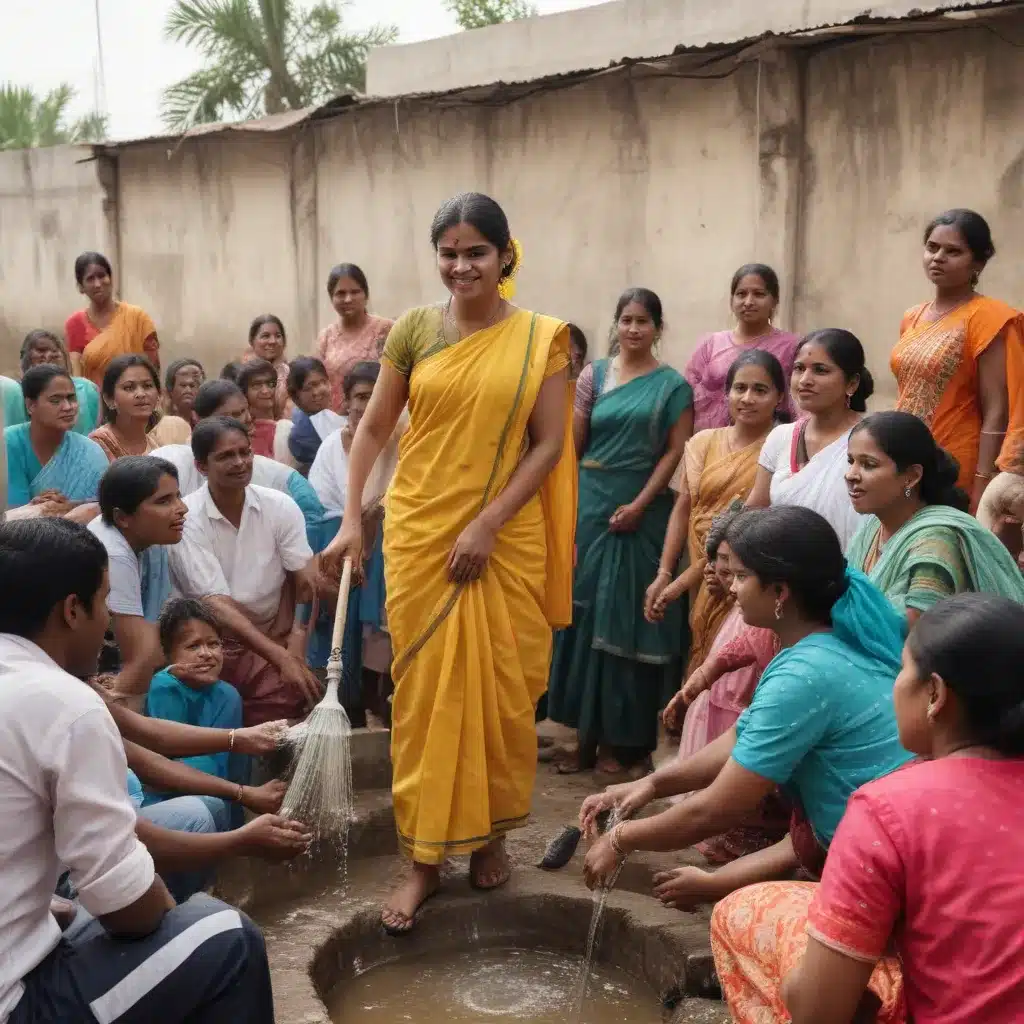
The Crucial Role of Frontline WASH Workers in Bridging Gaps
Frontline water, sanitation, and hygiene (WASH) workers play a pivotal role in ensuring access to essential services and improving community health outcomes. In the bustling city of Hyderabad, these unsung heroes are the linchpins connecting government programs to the grassroots, working tirelessly to enhance water and sanitation access, promote healthy behaviors, and empower marginalized communities.
Bridging the Gap: Frontline WASH workers, such as community mobilizers, hygiene promoters, and outreach workers, are the crucial interface between government initiatives and the citizens they serve. They navigate complex urban landscapes, identifying the most vulnerable households, understanding their unique needs, and tailoring interventions to address persistent WASH challenges.
Fostering Community Engagement: These frontline workers are the catalysts for community engagement, building trust and facilitating dialogue between local authorities and residents. By actively involving community members in decision-making processes, they empower citizens to become active stakeholders in improving WASH services and infrastructure.
Amplifying Voices of the Marginalized: Frontline WASH workers play a vital role in reaching out to marginalized communities, such as informal settlements and slums, ensuring that their voices are heard and their needs are addressed. They work tirelessly to bridge the equity gap, advocating for inclusive WASH policies and practices.
Empowering Frontline WASH Workers for Sustained Impact
To achieve lasting improvements in WASH service delivery and community health, it is essential to enhance the capacity of frontline WASH workers in Hyderabad. This requires a multi-pronged approach that addresses both individual and systemic barriers.
Investing in Training and Professional Development
Strengthening Technical Competencies: Frontline WASH workers require comprehensive training to develop their technical skills in areas such as water quality monitoring, sanitation infrastructure maintenance, and behavior change communication. Equipping them with the right knowledge and tools empowers them to provide high-quality services and effectively engage with communities.
Enhancing Interpersonal Skills: Effective community engagement relies heavily on the interpersonal skills of frontline WASH workers. Training programs should focus on developing their communication abilities, problem-solving skills, and conflict resolution techniques, enabling them to navigate complex community dynamics and foster trust-based relationships.
Promoting Continuous Learning: Establishing continuous professional development opportunities, such as refresher trainings and peer-learning networks, ensures that frontline WASH workers stay up-to-date with the latest trends, technologies, and best practices in the sector. This fosters a culture of continuous improvement and innovation.
Strengthening Supportive Supervision and Mentoring
Providing Regular Feedback and Guidance: Frontline WASH workers need access to supportive supervision and mentoring to help them navigate challenges, identify areas for growth, and continuously improve their performance. Regular feedback and guidance from experienced supervisors can boost their confidence and job satisfaction.
Fostering Collaborative Teamwork: Encouraging collaborative teamwork among frontline WASH workers, as well as with their supervisors and community partners, can enhance their sense of belonging and foster a shared commitment to achieving WASH goals. Regular team meetings and peer-to-peer support can strengthen their collective problem-solving abilities.
Recognizing and Incentivizing Excellence: Implementing a robust system of recognition and incentives can motivate frontline WASH workers to excel in their roles. This could include performance-based bonuses, career advancement opportunities, or public appreciation ceremonies that showcase their contributions to the community.
Strengthening Institutional Support and Enabling Environments
Improving Resource Allocation: Ensuring adequate budgetary allocations and the timely availability of essential WASH supplies, equipment, and infrastructure is crucial for frontline WASH workers to effectively carry out their duties. Streamlining procurement processes and resource management can reduce bottlenecks and empower these workers to deliver quality services.
Enhancing Data-Driven Decision-Making: Strengthening the capacity of frontline WASH workers to collect, analyze, and utilize data can significantly improve program planning, monitoring, and evaluation. Providing them with user-friendly digital tools and training them in data management can enhance evidence-based decision-making at the community level.
Fostering Multisectoral Collaboration: Encouraging collaboration among various government departments, community-based organizations, and private sector stakeholders can create an enabling environment for frontline WASH workers. This can lead to the development of integrated WASH programs that address the multifaceted needs of communities.
Amplifying Community Voices through Frontline WASH Workers
Empowering frontline WASH workers to be effective community advocates is crucial for driving sustainable change. By amplifying the voices of the communities they serve, these frontline workers can influence policy decisions, shape WASH program design, and ensure that marginalized groups are not left behind.
Community Feedback Mechanisms: Establishing robust community feedback mechanisms, such as regular public consultations, grievance redressal systems, and citizen scorecards, can provide frontline WASH workers with valuable insights to improve service delivery and address community concerns.
Collective Action and Advocacy: Frontline WASH workers can facilitate the formation of community-based organizations, such as WASH user groups or water and sanitation committees, to empower residents to collectively advocate for their rights and hold service providers accountable.
Fostering Inclusive Governance: By representing the concerns of their communities in decision-making forums, frontline WASH workers can ensure that local WASH policies and plans are responsive to the needs of all residents, particularly the most vulnerable.
Conclusion: Investing in Frontline WASH Workers for Transformative Change
Investing in the capacity development of frontline WASH workers in Hyderabad is a crucial step towards achieving equitable and sustainable WASH services. By empowering these essential community champions, local authorities can bridge the gap between government initiatives and grassroots realities, amplify the voices of marginalized communities, and catalyze transformative change in the WASH sector.
Through comprehensive training, supportive supervision, and institutional strengthening, frontline WASH workers can become powerful agents of change, driving community engagement, fostering inclusive governance, and ultimately, improving the health and well-being of all residents in Hyderabad. This strategic investment in frontline WASH workers is not only essential for the city’s development but also holds valuable lessons for other urban centers grappling with similar WASH challenges.

